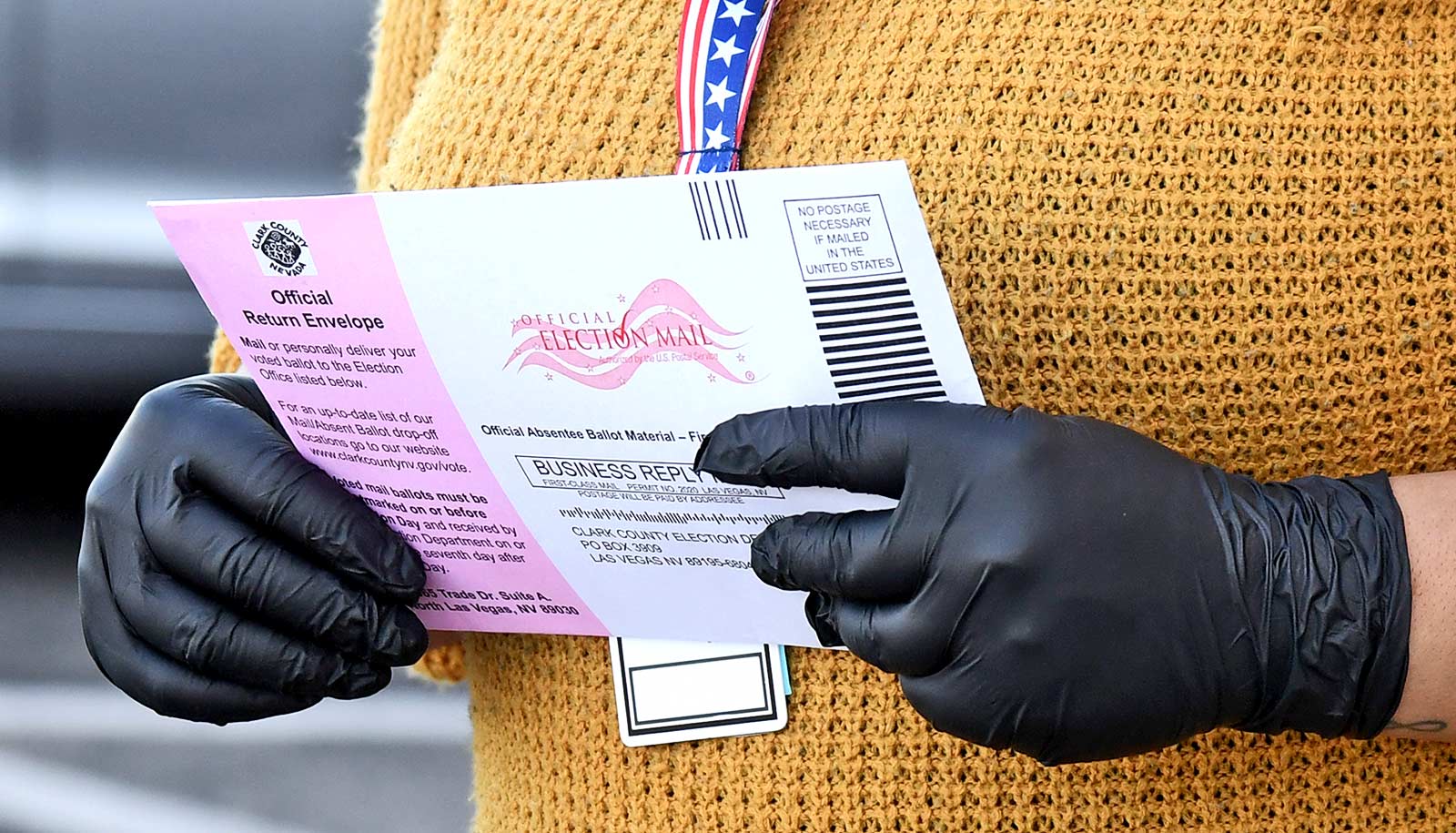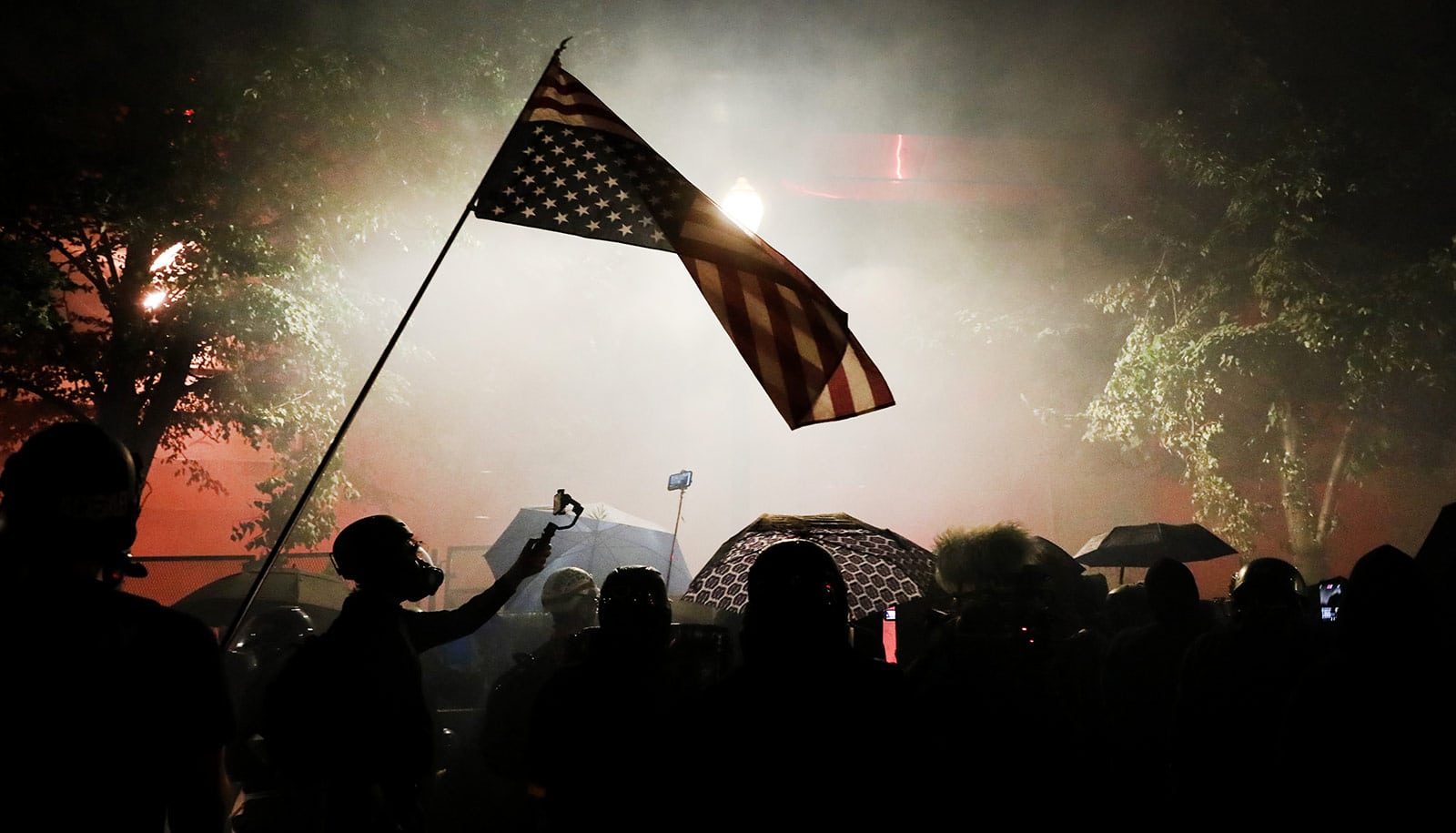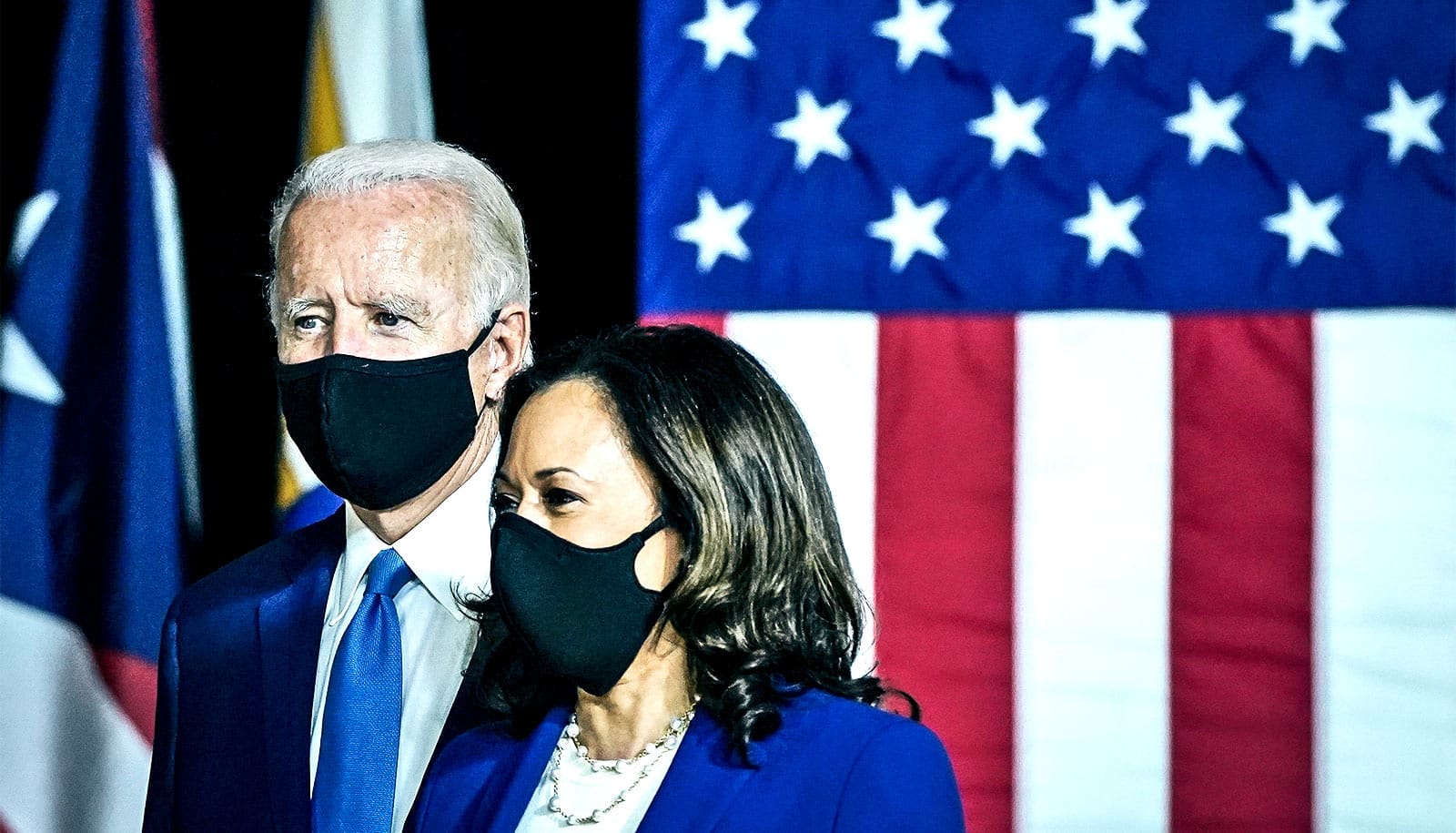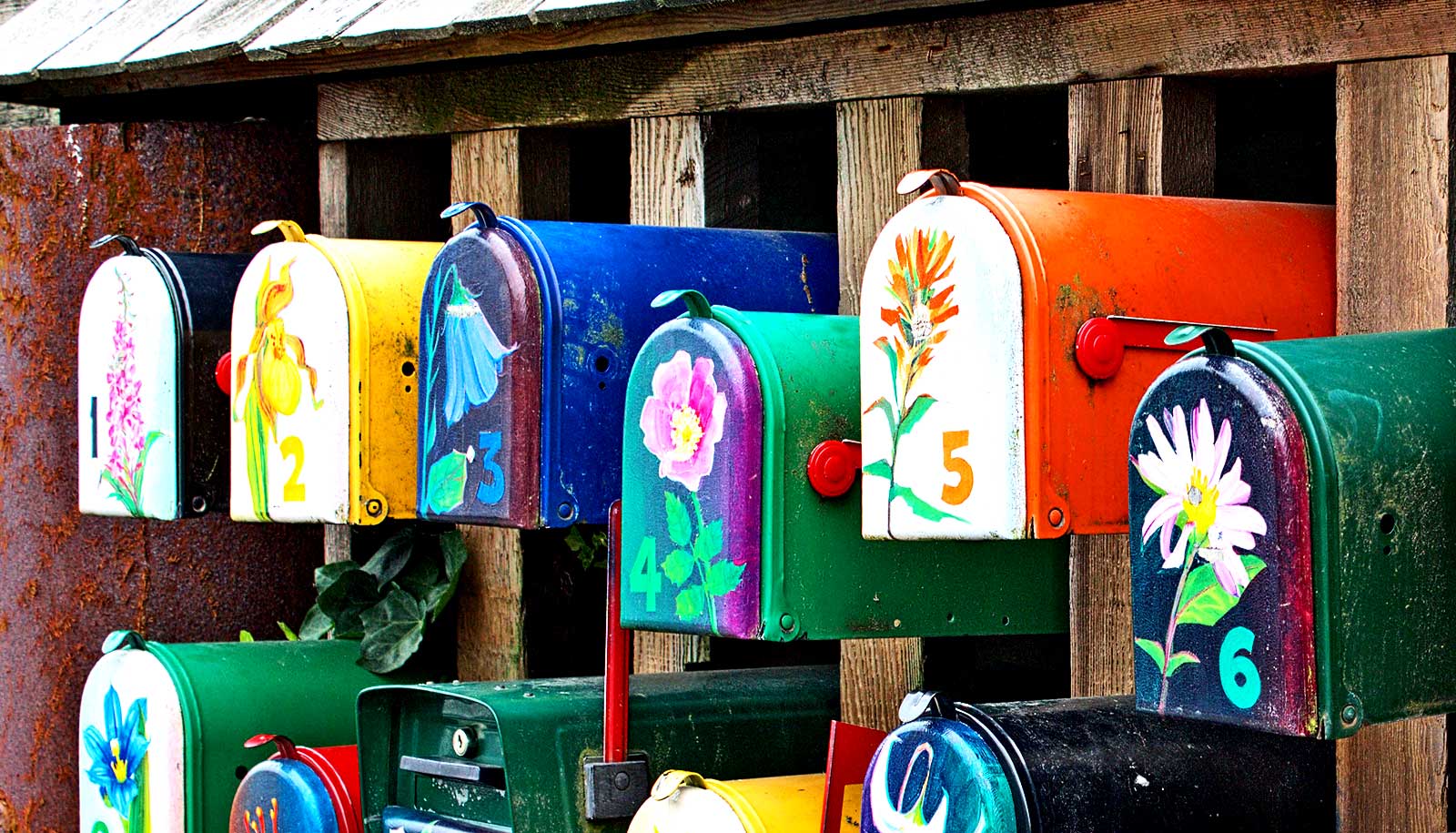Political scientists say concerns about this year’s electoral process—conspiracy theories, democratic backsliding, the integrity of mail ballots—are challenging some fundamental ideas about the United States.
COVID-19 has upended many aspects of normal life, including this fall’s election season. The pandemic has cast its long shadow over the process of voting by mail. At the same time, the nation’s social and political climate—fraught with protests for racial justice, an erosion of shared democratic principles, and an increase in political conspiracy theories—has culminated in a November election like few others.
“If enough Americans stop believing that elections can represent the will of the people, our political system is truly broken.”
What should we make of it all?
Political science faculty members offer some answers: James Johnson from the University of Rochester and Susan Orr from the College of Brockport, State University of New York, who are the coauthors of the forthcoming book Should Secret Voting Be Mandatory? (Polity 2020).
Also responding are University of Rochester faculty members Gretchen Helmke, one of the principal researchers of the academic watchdog group Bright Line Watch; Scott Tyson, who studies how conspiracy theories influence public decision making; and Mayya Komisarchik, who focuses on racial and ethnic politics and how they play out in political representation.
Here are their responses:
In your forthcoming book, you argue that the secrecy of the ballot, a crucial element of representative democracy, is under threat in the US. How so?
Johnson: Since the introduction of the secret ballot, voters complete their ballots in public at a polling site where secrecy is observed, which has made attempts to buy votes and coerce voters almost impossible. That’s because ballot secrecy makes it impossible to monitor compliance for someone wishing to purchase a vote or coerce a voter. Having no way to verify compliance makes vote buying and voter intimidation futile. The increase in mail-in voting and the craze of taking “ballot selfies” both aim to increase voter turnout in the face of declining voter participation. However, despite the good motivations behind them—both are problematic because they undermine ballot secrecy.
Orr: If voting takes place at home rather than in a polling place, vulnerable voters can be bribed and intimidated—there’s little secrecy when voting. If ballot selfies are legal, anyone could be pressured to vote in compliance with the wishes of another person and send a selfie to verify that compliance.
Are mail-in ballots in this presidential election safe?
Johnson: When properly implemented there is no reason for concern about voting by mail. Obviously, there can be mistakes or errors. But there is no reason to suspect insurmountable systematic difficulties.
Orr: There have been a lot of claims regarding fraud and voting by mail, but there is no compelling evidence for that. Even a database compiled by the conservative Heritage Foundation identifies fewer than 1,300 proven cases of voter fraud in the US since 1982—and that is among millions upon millions of votes cast in that period. That is true of voting fraud generally. Postal voting is a relatively small percentage of all votes cast. In an ideal world, the number of proven cases of vote fraud would be zero. We do not live in that world. But in the actual world electoral fraud is a marginal problem in the United States.
Johnson: The panic in some quarters about electoral fraud has been fabricated by a concerted, ongoing campaign undertaken by right-leaning legal activists, think tanks, and Republican party operatives. For those concerned about the putative partisan bias of postal voting there is little reason to fret. Recent in-depth analysis in states that have enacted postal voting show no partisan bias in those who choose to vote by mail. Similarly, the studies show no significant increase in turnout due to the availability of voting by mail that would advantage one party.
What should happen after this particular election in regard to voting by mail?
Johnson: Making policy or reforming institutions in a crisis is never optimal; any new rules have long-term consequences. That’s why we think that any changes in the face of the pandemic should be temporary. This is especially true in the case of universal postal voting because it’s among a set of reforms intended to enhance political participation by making voting more convenient. Yet, studies show that, by and large, measures of “convenience voting” do little to increase participation.
In Bright Line Watch’s latest survey, the experts you polled expressed concern over the use of federal powers and agencies to monitor, attack, and punish perceived political foes. What are you most concerned about for this election?
Helmke: There are a number of election nightmare scenarios being discussed right now, which we are also planning to poll experts on, ranging from Russian attempts to hack into voter registration and election systems in one or more states, to postal service delays that prevent mail ballots from being delivered to election officials in time to be counted, to the encouragement of violence and intimidation during voting or ballot counting. I am most concerned about President Trump’s refusal to promise to concede the election in the event that he loses.
Does the attempt at fast-tracking the nomination of a new Supreme Court justice just weeks before the election have parallels in autocratic states in Latin America that you have studied? Do you see this as an autocratic move or is this just the normal course of politics?
Helmke: Capturing the referees is an essential part of the playbook of would-be autocrats around the world. In this particular case, the fact that the administration is filling a vacant seat is certainly within the letter of the law. However, the fact that the court itself could play a central role in adjudicating the upcoming presidential election makes this move to fill the seat so quickly particularly concerning.
You are currently teaching a class on conspiracy theories in American politics. Are these theories new in US politics or have they just become more pronounced?
Tyson: Conspiracies aren’t really something new but have become weaponized in the current environment. I find it really helpful to keep in mind the conceptual distinction between “classic” conspiracy theories that typically offer an alternative explanation for a sequence of events—such as “the mob killed Kennedy,” or “the government is covering up aliens”—and what some call conspiracism that simply casts doubt on the conventional understanding of events—such as “just asking questions” or “I hear people saying.”
The latter is typically associated with baseless and, often, bizarre assertions meant to cast doubt and create uncertainty. The aim of conspiracism is not to persuade but to confuse and obfuscate. Although conspiracy theories have been around in the US since the founding, this new conspiracism has grown substantially in the last decade and a large amount of that is due to President Donald Trump. There is little doubt that he sees undermining the public’s trust in government institutions as beneficial.
How dangerous are conspiracy theories to our democracy, the integrity of the upcoming elections?
Tyson: At a fundamental level, conspiracism is a weapon against any political system based on mutual interests and compromise, and that makes it dangerous to democracies. By their very structure, conspiracies are about sowing division because they invent a distinction between those constituting the “elites” and the “truthers” who believe they’re trying to safeguard some form of the common good. Currently, conspiracies revolving around the integrity of the upcoming election are particularly dangerous because they are designed to undermine our trust in the result. If enough Americans stop believing that elections can represent the will of the people, our political system is truly broken.
You are currently teaching a graduate experimental methods course that among other things looks at get-out-the-vote efforts. Do they really work?
Komisarchik: Yes, some of these actually work. Two efforts that we know have positive effects on turnout are peer-pressure—telling you that your friends and neighbors have all voted and they’ll know if you don’t vote, and commitment apps that force you to mark a calendar entry for election day that includes the act of voting or signing a pledge that says on election day, “I’m going to go vote.”
Your research interests include race, policing, and immigration—all hot-button issues this year. Which one will most influence this election and why?
Komisarchik: They have been hot-button topics throughout the history of American elections. But public opinion is shifting: by June, more than two in three American adults reported thinking that recent police killings represented a broader problem in policing. Americans have made the connection between police violence and racial discrimination. In recent polls, more than three quarters of Americans have said that racial discrimination is a problem in the United States, and the number of white Americans who felt that way has almost doubled since 2015. This is all evidence that the electorate really has shifted, and the public is going to continue forcing both campaigns to address questions about police reform and racial discrimination throughout the election.
You’ve said this election is really different from previous ones. How so?
Komisarchik: This election is unique. In a liberal democracy, the traditional bargain is that “you win some, you lose some.” If you lose an election, policy won’t go your way for a while, but eventually you’ll get another chance to win and pass the policies you want. We’re now in a world where one party does not believe that the other can ever legitimately wield governing power. And they’ve acted on that belief by changing political institutions to prevent political power from ever shifting away from them. We want to get back to a place where losing an election doesn’t feel so bad because we know that, despite the fact that we might disagree with the victors, they genuinely have our best interests at heart, and we maintain an equal chance to win in the future.
How do you teach an election like this one?
Tyson: One thing we focus on in my class are common characteristics of disinformation and weaponized conspiracism. I encourage my students to be diligent about the information they consume, keeping in mind that assertions of doubt that offer no alternative explanation, competing assertions that seem to just “flood the zone,” or assertions that rely on projecting intentionality to seemingly random events, are all common, but not exclusive, markers of disinformation and conspiracism. We’re all susceptible to conspiratorial thinking and so people attracted to conspiracies are ultimately not all that different from the rest of us. Empathy and patience can go a long way.
Helmke: I use this as an opportunity to encourage students to make a plan to vote. In fact, one of the very first group assignments in the class on democratic erosion that I teach was for students to prepare presentations about the barriers to voting that university students face, particularly in the time of COVID. In addition, a couple of weeks ago I organized a virtual roundtable on voting and electoral manipulation for undergraduates at universities across the country as part of the democratic erosion consortium. I believe the live Zoom session and YouTube feed had approximately 800 students and faculty participating.
Komisarchik: Leading up to past elections I would always just tell my students to get registered and go vote unless they wanted to be represented by a bunch of old people who didn’t know how to use social media. That’s more or less what I would tell them now with a few extra things to consider. The system of true representation is broken, but the idea that apathy or surrender are our only options is a myth. You can make a huge impact by voting in state and local elections, by joining political organizations, or canvassing—just don’t yell at people, we have evidence that this actually turns people off voting—writing postcards and letters, contacting your elected officials, or donating even small amounts of money to causes and campaigns you care about. Do all of those things, and do them together. That’s politics.
Source: University of Rochester



